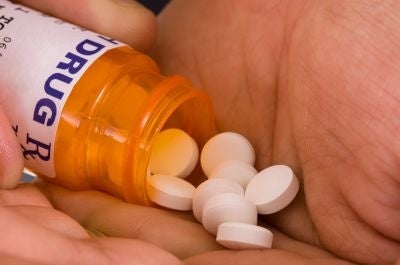How to turn your drugs in anonymously

The US Drug Enforcement Agency (DEA) has declared September 25 "Take-Back Day" - an occasion when expired prescription and OTC drugs can be turned in at various points across the country in an attempt to curtail abuse.
According to both the DEA and the International Narcotics Control Board (INCB), prescription drug abuse is on the rise worldwide and has surpassed the use of heroin, cocaine and ecstasy combined in some nations.
On February 24 the INCD called for "more awareness of this 'hidden' problem" globally. Here is what the hidden problem looks like in:
United States: it is problem number two, following cannabis, with "6.2million people abusing prescription drugs in 2008, more than the total number of people who abused cocaine, heroin, hallucinogens, MDMA ("ecstasy") and inhalants."
Germany: 1.4 -1.9 million individuals are hooked on pharmaceuticals.
Canada: the drugs of choice are prescription opioids such as hydromorphone, morphine and oxycodone with rampant abuse noted in all major cities .
United Kingdom: "In 2008, methadone was implicated in almost 30 per cent of drug-related deaths among people aged 16-24 years in the United Kingdom."
France, Italy, Lithuania and Poland: ten to 18 percent of students use sedatives or tranquillizers without a prescription.
South Africa: Paul Kruger, the executive director of Narconon, an addiction rehab center based in Johannesburg, said "there has been an increase of about 25 percent in the last year in the number of patients addicted to prescription medication at the clinic," according to Inter Press Service on March 5.
To find a convenient location near you in the US (over 2,700 with more added daily) to turn your prescription meds in on September 25, go to: http://bit.ly/b0rjDX
If you do not reside in the US, you may want to inquire with local hospitals and pharmacies to see if they have a safe way to dispose of old drugs.
Join our commenting forum
Join thought-provoking conversations, follow other Independent readers and see their replies
Comments
Bookmark popover
Removed from bookmarks